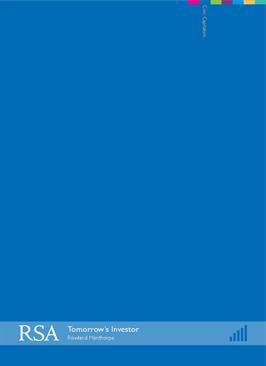The final report of the RSA’s Tomorrow’s Investor project combines the findings of its research with analysis of the pensions industry. In particular, it looks at costs and charges levied on pension plan members, at methods of improving transparency and accountability and at improving investor engagement. It puts the case for a new type of pension fund to provide low-cost and high-accountability investment.
The costs and charges levied on pension plan members are the most important element of a pension plan, because they are potentially avoidable. Yet most pension funds charge much more than they should because selling and set-up fees are so high.
The financial system is not set up to be fully accountable. Without the active scrutiny of ordinary citizens, institutions have been able to take excessive risks with their money.
Ordinary investors want a high-accountability, low-cost fund that offers reasonably secure returns at a decent level of risk.
The report looks at methods of improving transparency and accountability and at improving investor engagement. It suggests a new way of reporting costs and charges. It argues that pension funds should take more advantage of the resources at their disposal by utilising new methods of social engagement. Google uses prediction markets, so why can’t Norwich Union?
The report closes by recommending a new type of pension fund: one that is both low cost and high accountability. In the face of financial meltdown and a looming pensions crisis, this is the kind of innovation the financial services industry needs. The RSA plans to take this further in its work on Collective Pensions.
The long-terms savings market needs to function more effectively:
-
It needs to offer consumers clear and simple choices that allow them to express their preferences. Standardising and simplifying investment products would be a significant first step. At present selling and set-up costs swallow far too much money.
-
A fund managing strategy should be created that is far more modest in its aims. By adopting what we call a low-cost, low-friction investment strategy and holding on to their investments, fund managers could save as much as 20 per cent of the costs paid by pension plan members.
-
Fees should be expressed in a different way: as the total over a lifetime of the investment, rather than an annual charge. This would give ordinary investors a much better idea of what they are paying.
pdf 478.9 KB
Contributors


Be the first to write a comment
Comments
Please login to post a comment or reply
Don't have an account? Click here to register.